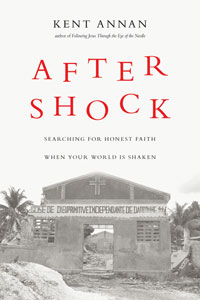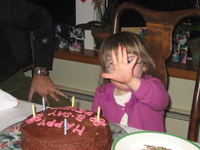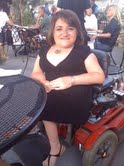 On the anniversary of the earthquake in Haiti, I was invited to participate in a conversation at Patheos about Faith and Doubt. Click here for a link to the Patheos Book Club discussion about Kent Annan’s Aftershock: Searching for Honest Faith When Your World is Shaken. Click here for “Letters from Haiti,” featuring a collection of personal stories of hope from relief workers, pastors, teachers, students and survivors of the quake who remain working and faithful one year later.
On the anniversary of the earthquake in Haiti, I was invited to participate in a conversation at Patheos about Faith and Doubt. Click here for a link to the Patheos Book Club discussion about Kent Annan’s Aftershock: Searching for Honest Faith When Your World is Shaken. Click here for “Letters from Haiti,” featuring a collection of personal stories of hope from relief workers, pastors, teachers, students and survivors of the quake who remain working and faithful one year later.
“Lord, I believe. Help me overcome my unbelief.” The
statement, the prayer, is recorded in Mark’s Gospel (Mark 9:14-29). A father
approaches Jesus on behalf of his son, who has been having seizures for years.
Jesus tells the father that healing can happen “for those who believe.” Then
comes the father’s confession. He believes. He doubts. And Jesus heals his son.
I’m with this father. I believe. And almost every day, I
find something–a newspaper headline, another person who mocks children with
disabilities, scientific “evidence” that suggests our lives are
meaningless–every day I find something to bolster my unbelief. And yet I
continue to follow this God, this Jesus, this Spirit of healing and redemption
and promise.
My doubt bubbles up in the face of global tragedy–the hundreds of thousands who have died in Haiti, the devastation wrought by the Asian Tsunami a few years back, the statistics from wars and famine and global unrest. And it percolates again when individuals suffer, especially children. I want to know that God is present. No. What I want is for God to change things, to undo the death and destruction, the terror and the pain. I want more than a glimpse of beauty and a hint of light. I want the fullness of the glory of the Lord. I want the day when faith is no longer necessary because it all makes sense. I want the proof that love conquers.
Years ago, I felt a certain degree of disdain for Christians who didn’t share my doubts. I worked in youth ministry, and I remember the time a student approached me in tears. “I don’t know if I believe the resurrection really happened,” she said. It felt like a triumph. I wanted her to question her childhood beliefs. I believed she needed to explore all the intellectual angles, and pray about whether or not God really is able to conquer death. I encouraged her to wrestle long and hard with views that oppose the Gospel narratives.
In time, she did rebuild her faith, or perhaps I should say, God rebuilt her faith. And perhaps her walk with Jesus was stronger for the collapse. But I have come to doubt my own triumphalism. I used to judge other believers who maintained a steadfast faith in God’s goodness in the wake of what I considered evidence to the contrary. But I’ve come to see those believers as ones with a particular gift, the gift of faith. In 1 Corinthians 12, Paul writes of spiritual gifts, and he includes “faith” as one of the gifts. He begins the list of gifts with an explanation that all the gifts are different “manifestations of the Spirit,” given “for the common good.”
Unless God decides to work a spiritual transformation, I will always be a doubter. And I hope my doubt can be used in service of the church, as I continue to seek the presence of God, as I continue to believe in the midst of my unbelief. But I hope I also continue to recognize the gift that other Christians offer to me, the gift of faith. In the aftershock, in the midst of the rubble, thank God for those who still sing praise.
To read more in the Faith and Doubt series, click here.

